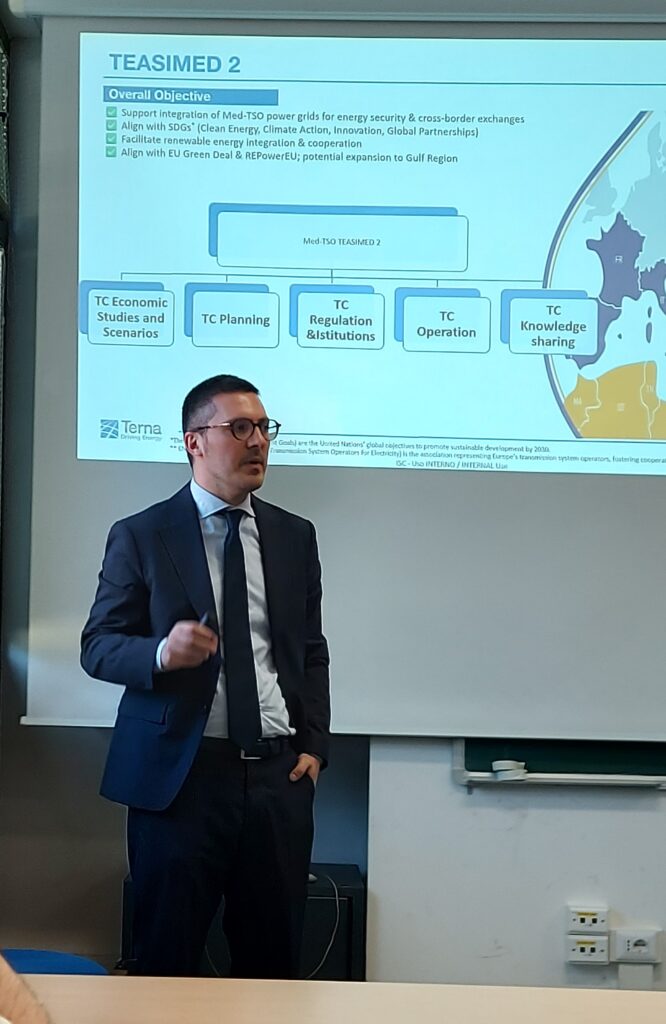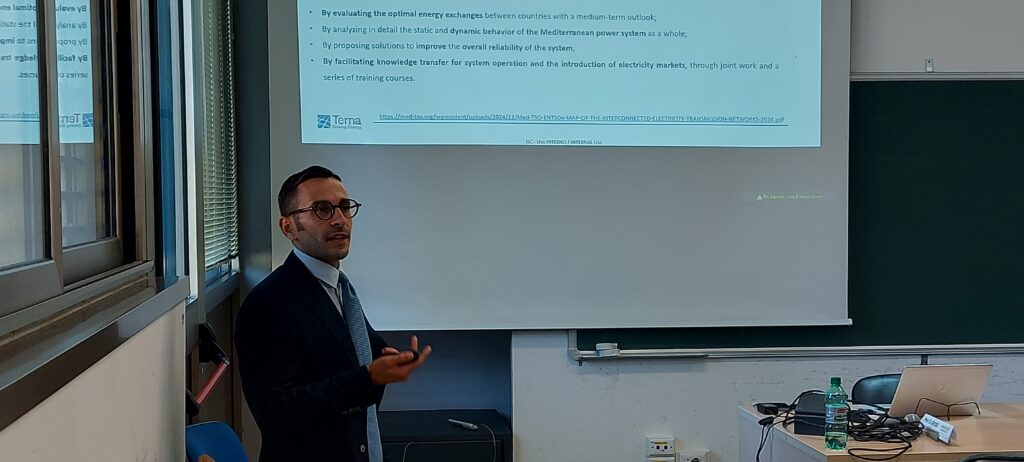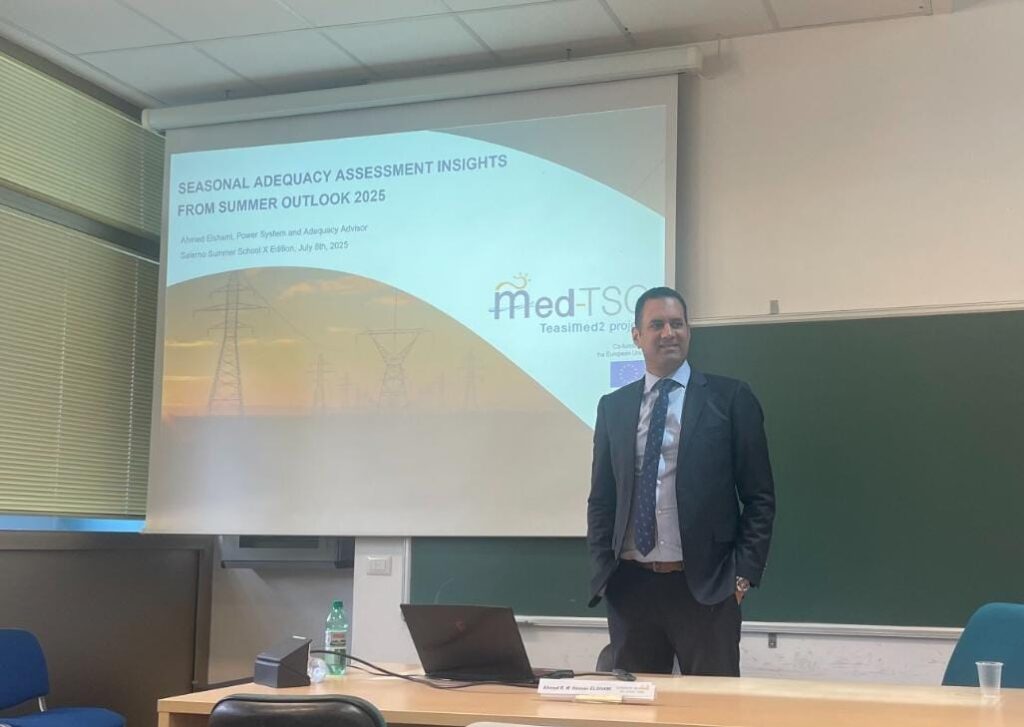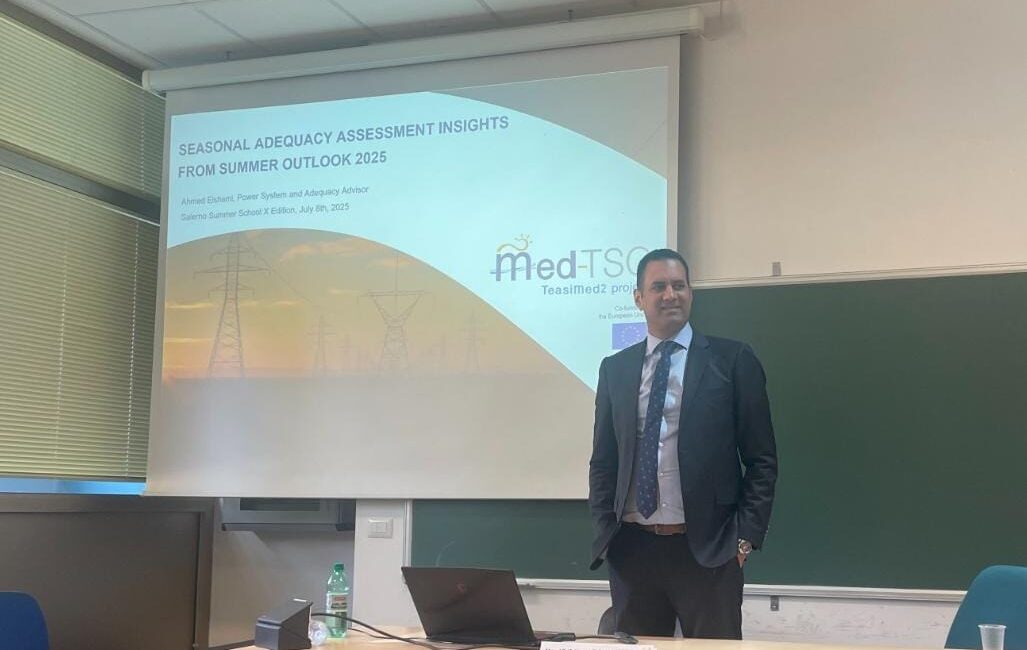Med-TSO representatives participated in the 10th edition of the Summer School on Smart Grid, organised by the University of Salerno, Italy, from 7 to 10 July, focusing on “Grid Interconnections for Flexibility, Security and Resilience”.
In this framework, on 7 July Federico Quaglia (TERNA, Italy), Chairperson of Med-TSO’s Technical Committee (TC) Operation, and Cosimo Pisani (TERNA, Italy), member of the same TC, provided a comprehensive presentation of our ongoing Teasimed 2 project, describing its tasks and technical activities, then focusing on the role of the TC in enhancing system reliability through regional cooperation, developing and monitoring technical and operational standards, facilitating joint studies and knowledge sharing, and implementing tools for data exchange and modeling among Med-TSO members.
Then, they focused on the flexibility assessment of power systems, identifying the challenge of facing more variable profiles of the “residual load” (demand minus variable renewable generation) that the integration of RES may lead to. They highlighted the need for flexible resources that can quickly adjust their output upward or downward as needed, and they also provided insights on how this need for flexible resources is expected to evolve over time, exploring the role of interconnections with neighbouring countries in helping to mitigate this challenge.
The next day, Ahmed Elshami, Med-TSO Power System and Adequacy Studies Advisor, delivered a speech presenting Med-TSO’s Seasonal Adequacy Assessment, providing a detailed overview of the methodology used to evaluate power system adequacy and offering insights into the adequacy situation in MENA countries.
He explained that, with the increasing penetration of renewable energy sources (RES) and the rising impact of climate variability, addressing uncertainty is becoming a cornerstone for power system planning and operations. To manage this uncertainty, Med-TSO adopts a probabilistic approach, where a target season or year is selected and combined with projected electricity demand, multiple sets of climate data, and unplanned outage patterns. This method enables the simulation of a wide range of potential future scenarios, from extreme weather conditions to sudden generation outages, allowing a realistic and comprehensive adequacy assessment, reflecting how real systems behave under stress. The result is a clearer understanding of how likely it is to meet demand, the risk of shortages, and the resilience of the system under varying conditions.
Furthermore, Elshami emphasized that Med-TSO extended this methodology to its non-EU members, recognizing that recent EU regulations impose greater responsibility on European TSOs to assess and monitor adequacy: by applying the same probabilistic standards, non-EU Mediterranean TSOs can align with EU best practices, strengthening regional cooperation and enhancing collective preparedness in the face of increasing system uncertainties.
Engaging in academic events such as this highlights Med-TSO’s commitment to becoming a recognized and reliable reference for technical, market, and policy matters concerning the Mediterranean power system.




